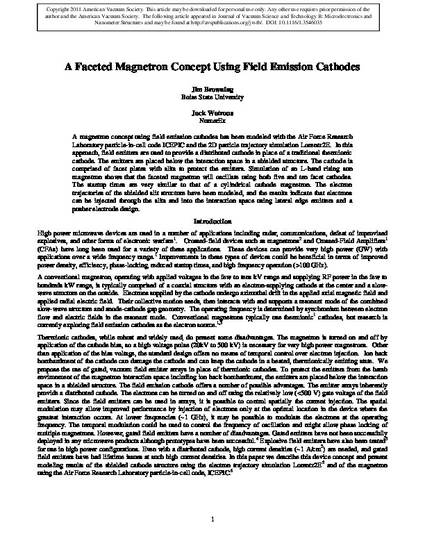
A magnetron concept using field emission cathodes has been modeled with the Air Force Research Laboratory particle-in-cell code ICEPIC and the 2D particle trajectory simulation Lorentz2E. In this approach, field emitters are used to provide a distributed cathode in place of a traditional thermionic cathode. The emitters are placed below the interaction space in a shielded structure. The cathode is comprised of facet plates with slits to protect the emitters. Simulation of an L-band rising sun magnetron shows that the faceted magnetron will oscillate using both five and ten facet cathodes. The startup times are very similar to that of a cylindrical cathode magnetron. The electron trajectories of the shielded slit structure have been modeled, and the results indicate that electrons can be injected through the slits and into the interaction space using lateral edge emitters and a pusher electrode design.
Copyright 2011 American Vacuum Society. This article may be downloaded for personal use only. Any other use requires prior permission of the author and the American Vacuum Society. The following article appeared in Journal of Vacuum Science and Technology B: Microelectronics and Nanometer Structures and may be found at http://avspublications.org/jvstb/. DOI: 10.1116/1.3546035
Available at: http://works.bepress.com/jim_browning/1/
